What is an inverter motor in a washing machine?
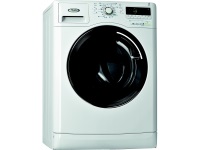
Inverter motor, created by engineers of the Korean concern LG in 2005, brought the production of washing machines to a whole new level. Compared to its predecessors, this motor has better technical characteristics, it is more wear-resistant and, therefore, serves significantly longer. That's why inverter motors are rapidly gaining popularity, and more and more manufacturers are adopting the technology to produce these units.
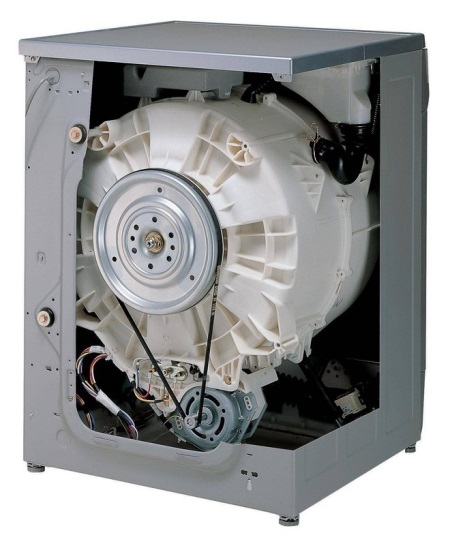
Model features
The main feature of motors of this type is the presence of a special device - an inverter (frequency converter), which regulates the speed and frequency of the drum, converting the current from DC to AC. This makes it possible to control the operation of the mechanism with utmost accuracy.
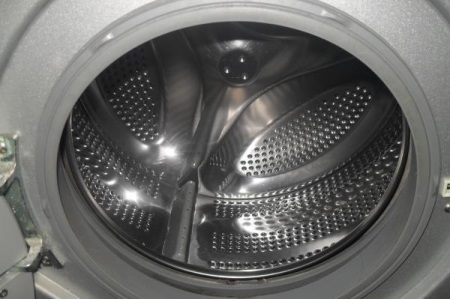
In conventional motors, the moving part of the motor - the rotor (also called the "armature") is energized through the brushes: a magnetic field appears in the windings of the rotor, and it begins to rotate. Its speed depends on the mains voltage.
The speed of rotation of inverter motors is determined by the voltage, which is first converted by the inverter and then fed to the stator. That's why That's why the motor can be controlled down to the very last detail.
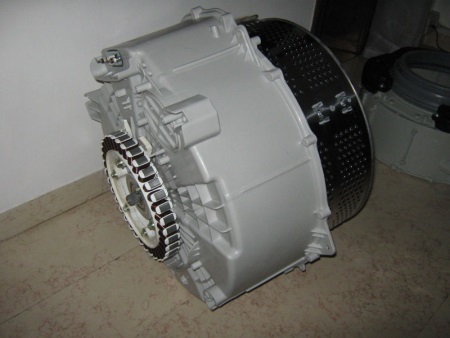
Pros of
- Inverter motors are almost silent. This indicator is especially important for families with children; you can start washing at any time without fear of waking the baby.
- In these motors, there are no parts that can quickly break down due to the fact that they are subjected to intense friction during operation. This is a guarantee that the unit will last longer than its asynchronous than its asynchronous and collector "counterparts".
- For the same reason, inverter motors have a higher efficiency and energy savings of up to 20%.
- Inverter-type motors very accurately control the drum movements, which ensures strict compliance with the stated mode of washing.
- Inverter machines are able to spin laundry at high speed.
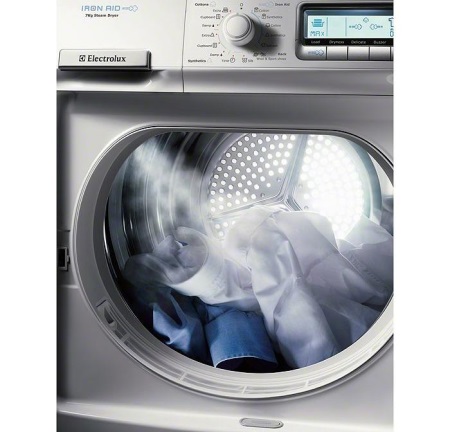
Disadvantages
The main disadvantage of motors of this type - their high price and the high cost of repair in case the unit fails.
Is it worth buying?
As you know, everything in the world is relative. To understand whether you should choose an inverter machine, look at it from a different angle:
- Do you need quiet when washing? It's been observed that direct-drive machines are quieter than inverter-type motors. The inverter makes very specific noises, like squeaks and howls. In addition, the main reason for the loud operation of the equipment is not the motor, but the rotating drum, which rotates during spinning.
- Are the savings realistic? In fact, the main consumption of electricity is not for the motor, but for the operation of the heating element. So, in fact, you can only save 2-5% on electricity.
- Are you interested in durability? Speaking about the absence of friction-prone parts in the unit, the manufacturers deceive a little: there are bearings in any motor, and their number is approximately the same. The above statement applies mainly to the brushes that supply voltage to the armature winding. Indeed, in the inverter motor they are not present. However, the wear life of these parts is about 10 years, and the cost of replacing them ranges from 2 to 3 c.u.
An inverter-type motor can last more than 15 years, but are you sure you won't want to change your washing machine model sooner?
- Is an intensive spin a good thing? Spinning at high speeds makes the laundry almost dry, but the fabric gets damaged and torn faster.
- Why do I need precision spin speed? The main requirement for washing equipment is its ability to wash laundry. And what revolutions the machine will do it, is not so important.
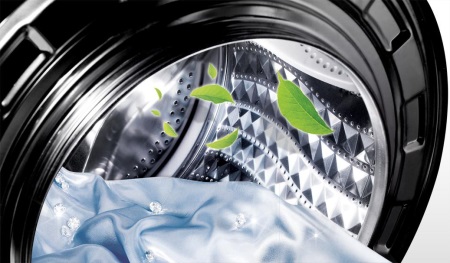
Experts recommend choosing a washing machine, first of all pay attention to its functionality. The inverter motor itself does not guarantee that the machine will wash flawlessly.




